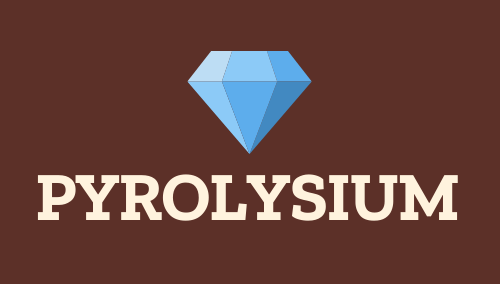As the world grapples with the pressing issue of waste management, it has become increasingly clear that adopting sustainable waste reduction strategies is crucial for minimizing our environmental footprint and ensuring a greener tomorrow. With the rise of eco-conscious consumers and governments implementing stricter regulations, businesses and households alike are under pressure to reduce their waste output and adopt environmentally friendly practices. In this article, we will delve into the key strategies and innovations being implemented by leading waste management companies worldwide, exploring how they are reducing waste, promoting sustainability, and setting themselves apart from others in the industry.

Effective Sustainable Waste Reduction Strategies for Businesses
Implementing sustainable waste reduction strategies is crucial for minimizing environmental impact and boosting business efficiency. As a business owner, you can take proactive steps to reduce waste, lower costs, and contribute to a healthier planet. Here are six essential strategies to get you started:
- Sources Reduction
- Recycling Programs
- Composting
- Waste-to-Energy Solutions
- Supply Chain Optimization
- Employee Engagement and Education
Reduce waste generation by minimizing packaging, reusing products, and recycling materials whenever possible. Consider implementing a zero-waste policy in your office or facility, and encourage employees to participate in waste-reduction initiatives.
Develop a comprehensive recycling program that includes paper, plastic, glass, and metal recycling. Partner with local recycling facilities to ensure that recyclable materials are properly processed and reused.
Implement composting programs for food waste and yard trimmings. Compost can be used as fertilizer, reducing the need for synthetic fertilizers and minimizing greenhouse gas emissions.
Explore waste-to-energy solutions, such as anaerobic digestion or gasification, to convert non-recyclable waste into energy. This approach can significantly reduce landfill waste and generate renewable energy.
Work with suppliers to reduce packaging waste, implement sustainable sourcing practices, and promote environmentally responsible manufacturing processes. Encourage suppliers to adopt circular economy principles and reduce waste throughout their operations.
Educate employees on the importance of sustainable waste reduction and involve them in waste-reduction initiatives. Provide training and resources to help employees understand their role in reducing waste and promoting sustainability.
By implementing these strategies, businesses can significantly reduce waste, lower costs, and contribute to a healthier environment. Remember to continuously monitor and evaluate your waste reduction efforts, making adjustments as needed to optimize your sustainability goals.
Revolutionizing Waste Management: Top Sustainable Waste Reduction Methods
Discover how pioneering waste management companies are transforming the industry with cutting-edge sustainable waste reduction methods, impacting communities and the environment globally.
-
The Rise of Advanced Recycling Technologies
We’re witnessing a significant shift towards advanced recycling technologies, enabling the efficient processing of complex waste streams. Companies like TerraCycle and Closed Loop Partners are pioneering these innovations, making it possible to recycle materials previously considered non-recyclable.
TerraCycle’s Zero Waste Box program allows consumers to collect hard-to-recycle materials, which are then processed into raw materials for manufacturing new products. Similarly, Closed Loop Partners’ Circular Economy Platform connects businesses with circular economy solutions, promoting the reuse and recycling of materials.
-
Pyrolysis: A Game-Changing Technology for Waste Conversion
Pyrolysis, a thermal decomposition process, is gaining traction as a viable solution for converting waste into valuable resources. This technology has the potential to transform the waste management landscape, producing biochar, syngas, and other useful byproducts.
At Pyrolysium, we’re committed to educating and inspiring individuals about sustainable living and eco-friendly technologies, including pyrolysis. Our mission is to empower communities to adopt greener practices and reduce their environmental footprint.
-
Sustainable Waste Reduction through Composting and Anaerobic Digestion
Composting and anaerobic digestion are effective methods for reducing organic waste, producing nutrient-rich fertilizers and biogas. These processes have gained popularity among waste management companies, who recognize their potential to minimize landfill waste and mitigate greenhouse gas emissions.
Companies like Novozymes and LanzaTech are leveraging microbial fermentation and anaerobic digestion to convert organic waste into valuable chemicals and fuels. Their innovations have the potential to significantly reduce waste disposal costs and promote a more circular economy.
-
Circular Economy Business Models and Collaborations
The adoption of circular economy principles is driving innovation in waste management, with companies embracing collaborative business models and partnerships. By working together, stakeholders can share knowledge, resources, and expertise, accelerating the development of sustainable waste reduction solutions.
Initiatives like the Ellen MacArthur Foundation’s New Plastics Economy Global Commitment bring together industry leaders, governments, and NGOs to tackle plastic pollution and promote a circular economy. Similar collaborations are emerging in various sectors, fostering a culture of cooperation and innovation.
-
Waste-to-Energy Solutions and Carbon Capture
Waste-to-energy technologies, combined with carbon capture and storage, offer a promising approach to reducing greenhouse gas emissions from waste management. These solutions involve the conversion of waste into energy, often in the form of electricity or heat, while capturing and storing CO2 emissions.
Companies like Veolia and SUEZ are investing in waste-to-energy projects, incorporating carbon capture and storage technologies to minimize environmental impacts. These initiatives demonstrate the potential for waste management to contribute positively to climate change mitigation efforts.

Key Characteristics of a Successful Sustainable Waste Reduction Strategy
We believe that a successful sustainable waste reduction strategy requires a combination of several key characteristics that set industry leaders apart from others.
- Clear Goals and Objectives
- Comprehensive Assessment and Planning
- Implementation and Monitoring
- Culture Change and Education
- Partnerships and Collaboration
- Continuous Improvement and Innovation
A well-defined vision and mission statement is crucial for guiding the development and implementation of a sustainable waste reduction strategy.
At Pyrolysium, we strive to educate and inspire individuals about sustainable living and eco-friendly technologies, focusing on pyrolysis—a process that transforms waste materials into valuable resources like biochar.
Our goal is to raise awareness about how individuals and communities can reduce their environmental impact, adopt greener practices, and embrace innovative solutions to address waste management and climate change.
We aim to provide practical insights into sustainability, eco-technology advancements, and actionable steps for those passionate about environmental conservation.
A thorough assessment of current waste management practices and identification of areas for improvement is essential for developing an effective sustainable waste reduction strategy.
This involves conducting a waste audit, analyzing data, and consulting with stakeholders to determine the most suitable approach for reducing waste and promoting sustainability.
At Pyrolysium, we emphasize the importance of collaboration and knowledge-sharing among industry professionals, policymakers, and community members to drive positive change.
The successful implementation of a sustainable waste reduction strategy requires careful planning, coordination, and monitoring of progress.
This includes establishing clear metrics and benchmarks for measuring success, tracking waste reduction rates, and making adjustments as needed to optimize outcomes.
We recognize the significance of continuous learning and improvement in achieving our goals and strive to stay up-to-date with the latest developments in sustainable waste management and eco-technology.
A successful sustainable waste reduction strategy relies heavily on fostering a culture of sustainability and education within organizations and communities.
This involves raising awareness about the importance of waste reduction, promoting behavioral changes, and encouraging individuals to take ownership of their environmental footprint.
We believe that empowering individuals with knowledge and skills is critical for driving meaningful change and creating a more sustainable future.
Effective partnerships and collaborations between industry stakeholders, governments, and community groups are vital for achieving significant reductions in waste and promoting sustainability.
We recognize the value of working together to share knowledge, expertise, and resources, and strive to build strong relationships with like-minded organizations and individuals who share our passion for sustainability.
A successful sustainable waste reduction strategy demands ongoing innovation and improvement to stay ahead of emerging challenges and opportunities.
This involves staying informed about the latest research, technologies, and best practices in sustainable waste management and eco-technology, and applying this knowledge to drive continuous improvement.
We remain committed to pushing the boundaries of what is possible in sustainable waste reduction and look forward to collaborating with others to create a more circular and regenerative economy.

Embracing Sustainable Waste Reduction Practices
As individuals and organizations, we have the power to significantly impact the environment by adopting sustainable waste reduction practices.
- Reduce Your Carbon Footprint
- Choose reusable bags, containers, and water bottles instead of disposable ones.
- Avoid buying products with excessive packaging.
- Opt for digital documents and bills instead of physical copies.
- Implement Recycling Programs
- Set up recycling bins in your home, office, or community center.
- Participate in local recycling programs and events.
- Encourage others to join you in recycling efforts.
- Compost Organic Waste
- Create a compost bin or pile in your backyard.
- Add food scraps, leaves, and grass clippings to the compost.
- Turn the compost regularly to speed up the decomposition process.
- Support Sustainable Technologies
- Learn about pyrolysis and its applications.
- Support companies and initiatives that promote sustainable waste reduction.
- Invest in renewable energy sources and sustainable infrastructure.
- Educate Yourself and Others
- Read books, articles, and online resources about sustainable waste reduction.
- Attend workshops, webinars, and conferences on sustainable waste management.
- Share your knowledge with friends, family, and colleagues to inspire change.
One of the most effective ways to reduce waste is to minimize our consumption of single-use plastics, paper products, and other non-essential items.
Recycling is a crucial step in reducing waste and conserving natural resources.
Composting organic waste reduces landfill waste and creates nutrient-rich soil for gardening and agriculture.
Sustainable technologies like pyrolysis can convert waste into valuable resources like biochar.
Knowledge is power when it comes to sustainable waste reduction.
By implementing these sustainable waste reduction practices, we can significantly reduce our environmental impact and create a better future for generations to come.
Get Involved in Your Community
Join local initiatives, participate in clean-up events, and advocate for policies that support sustainable waste reduction.
Make a Difference Today
Start small, start now, and make a commitment to sustainable waste reduction.
Essential Features of Sustainable Waste Reduction Programs
We set ourselves apart from other waste management companies through our commitment to sustainable waste reduction.
- Comprehensive Waste Assessment
- Education and Training
- Innovative Technologies
- Community Engagement
- Data-Driven Decision Making
A thorough analysis of our clients’ waste streams to identify opportunities for reduction, reuse, and recycling.
This involves evaluating the types and quantities of waste generated, as well as the current waste management practices in place.
The goal is to develop a customized plan that meets the unique needs of each client and helps them achieve their sustainability goals.
Our team works closely with clients to implement the recommended changes and monitor progress over time.
This approach ensures that we’re always looking for ways to improve and optimize our services.
We believe that education and training are critical components of a successful waste reduction program.
Our team provides regular workshops and training sessions for clients and their employees on topics such as waste sorting, composting, and recycling.
We also offer online resources and educational materials to support ongoing learning and development.
By empowering clients with the knowledge and skills they need to manage their waste effectively, we help them achieve long-term sustainability goals.
We stay at the forefront of waste reduction technology by investing in cutting-edge solutions and partnerships with leading innovators.
From advanced recycling facilities to pioneering waste-to-energy systems, we’re constantly exploring new ways to minimize waste and maximize resource recovery.
Our commitment to innovation enables us to deliver high-quality services that meet the evolving needs of our clients.
We recognize the importance of community involvement in achieving sustainable waste reduction goals.
Through outreach programs, public events, and partnerships with local organizations, we engage with residents, businesses, and stakeholders to promote waste reduction practices and educate them about the benefits of sustainable waste management.
By fostering a sense of community ownership and responsibility, we encourage everyone to play a role in protecting the environment.
We utilize data analytics and monitoring tools to track waste generation, diversion rates, and other key performance indicators.
This data informs our decision-making processes, enabling us to identify areas for improvement and adjust our strategies accordingly.
By leveraging data-driven insights, we ensure that our waste reduction programs are effective, efficient, and continuously improving.

Reducing Waste Sustainably Without Compromising Convenience or Increasing Costs
We believe that reducing waste sustainably doesn’t have to come at the expense of convenience or increased costs. At Pyrolysium, we’re committed to helping individuals and businesses find effective and affordable ways to minimize their environmental footprint.
- Implement a Recycling Program : Start by implementing a recycling program in your home or workplace. Make sure to separate recyclables from trash and participate in local curbside recycling programs.
- Reduce Single-Use Plastics : Reduce your reliance on single-use plastics by switching to reusable bags, water bottles, and coffee cups. Choose products with minimal packaging and opt for items made from sustainable materials.
- Compost Food Waste
- Buy in Bulk : Buying in bulk reduces packaging waste and saves you money in the long run. Consider purchasing items like nuts, grains, and cleaning supplies in larger quantities.
- Upcycle or Repurpose Items : Get creative and find new uses for items you might otherwise throw away. Upcycling or repurposing old furniture, clothing, or household items can significantly reduce waste.
- Choose Eco-Friendly Products : When shopping for personal care products, cleaning supplies, or paper goods, choose options with minimal packaging and environmentally friendly ingredients.
- Participate in Community Programs : Many cities offer community composting programs, bulk pickup services, or hazardous waste collection events. Participate in these initiatives to further reduce your waste output.
- Support Companies That Prioritize Sustainability : By supporting companies that prioritize sustainability, you’re encouraging them to continue developing eco-friendly practices and products.
- Get Involved in Local Initiatives : Join local clean-up events, advocacy groups, or community gardens to contribute to a larger movement towards sustainability.
Additional Tips for Businesses
- Conduct a Waste Audit : Assess your company’s waste generation patterns to identify areas for improvement.
- Invest in Energy-Efficient Equipment : Upgrade to energy-efficient lighting, HVAC systems, and appliances to reduce energy consumption and lower your carbon footprint.
- Implement a Zero-Waste Policy : Set ambitious goals for reducing waste and develop strategies to achieve them.
- Engage Employees in Sustainability Efforts : Educate and involve employees in sustainability initiatives to foster a culture of environmental responsibility.
Conclusion
By incorporating these simple yet effective strategies into your daily life and business operations, you’ll be well on your way to reducing waste sustainably without compromising convenience or increasing costs. Remember, every small step counts, and collective efforts can lead to significant positive change. Let’s work together to create a more sustainable future for generations to come.

0 Comments